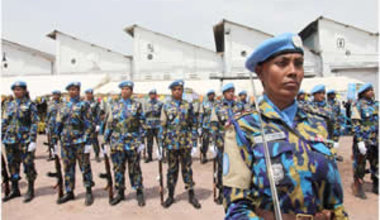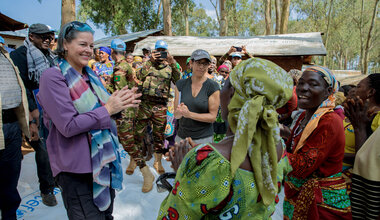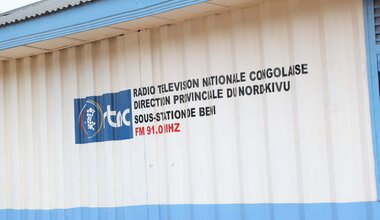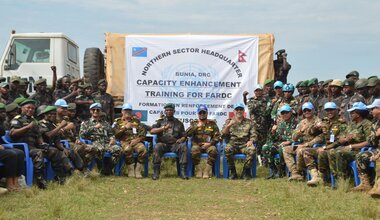Female Peacekeepers receive training on gender and effectiveness in military organizations

The newly created Military Gender Field Advisory section of the United Nations Organization Stabilization Mission in the Democratic Republic of the Congo (MONUSCO) began on 1st October 2014 in Goma, North Kivu, a series of training sessions for the mission’s female peacekeepers as well as servicewomen in the Armed Forces of the DR Congo (FARDC), addressing human rights, child protection and gender issues and the military code of conduct.
The MONUSCO Force Commander, General Carlos Alberto dos Santos Cruz, has established a Gender Field Advisory unit within his team, in accordance with the United Nations Security Council resolution 1325 (31 October 2000) on Women, Peace and Security, and following a request from the MONUSCO Gender section.
This unit will provide training to all female peacekeepers and their counterparts in the Congolese Armed Forces (FARDC) to help them better understand UN Security Council resolution 1325 and the issues it addresses. These issues include the impact of armed conflict on women, the under-valued and under-utilized contributions women make to conflict prevention, peacekeeping, conflict resolution and peace-building, and the importance of women’s equal and full participation in all efforts for peace and security.
On this occasion, General dos Santos Cruz recalled that:
“Resolution 1325 reaffirms the important role of women in the prevention and resolution of conflicts, peace negotiations, peace-building, peacekeeping, humanitarian response and in post-conflict reconstruction and stresses the importance of their equal participation and full involvement in all efforts for the maintenance and promotion of peace and security.”
“The resolution urges all actors to increase the participation of women and incorporate gender perspectives in all United Nations peace and security efforts.”
It also “calls on all parties to conflict to take special measures to protect women and girls from gender-based violence, particularly rape and other forms of sexual abuse, in situations of armed conflict.
It “provides a number of important operational mandates, with implications for Member States and the entities of the United Nations system.”
Major Rachel Grimes, of the Military Gender Field Advisory unit in Goma, explained how female soldiers can empower Congolese women and enhance the Forces’ situational awareness.
“Adding a gender perspective has the potential to transform the traditional military paradigm by including non-traditional security issues,” he said. “Gendered dimensions of conflict can be tremendously transformative by affecting both how and what the operation does in terms of its priorities and tactics. It affects the aims of operations, and expands the range of violence that must be addressed (including sexual violence and other violence directed at the civilian population, not just the violence of traditional warfare). It also affects tactical behavior along patrol routes, which people within the community are consulted .A gender perspective in military operations is therefore a tool, a new capability for the military to use when evaluating threats, especially non-military threats such as sexual violence and human trafficking, or even in humanitarian crises.”
The next training session by the Military Gender Field Advisory unit will focus on FARDC servicewomen.
Clara Padovan/MONUSCO
 ONU
ONU Nations Unies Maintien de la paix
Nations Unies Maintien de la paix




